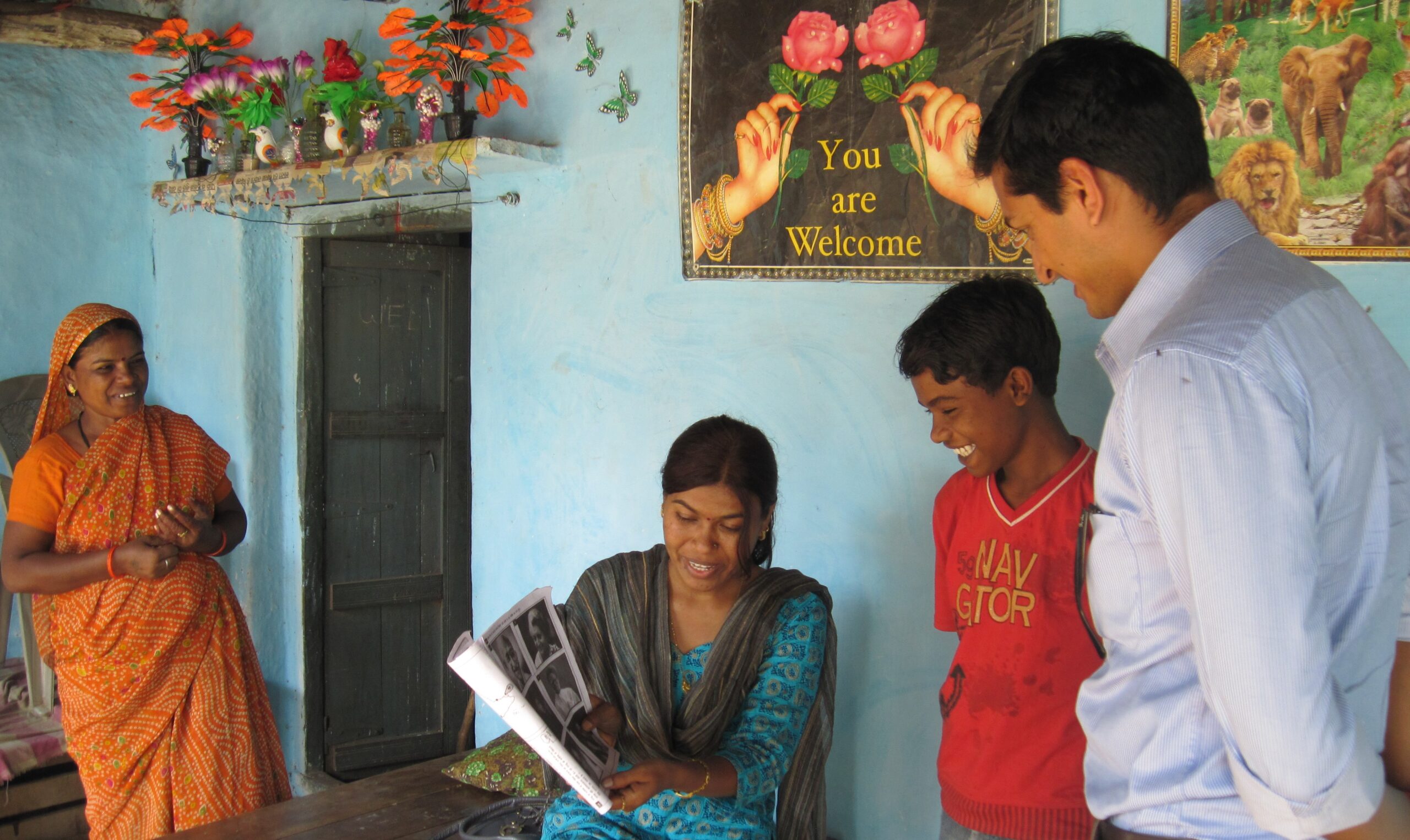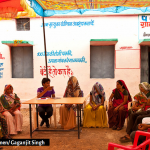
PART II: FIELD EXPERIENCE – NOT JUST ABOUT DATA
8 June 2016
This blog is a continuation from Part 1: Engaging with PAISA 2015. It starts off with a recap of PAISA followed by my experiences on the field.
The PAISA 2015 survey at Accountability Initiative informed key research conducted on three prominent Centrally Sponsored Schemes (CSSs), Sarva Shiksha Abhiyan (SSA), Swachh Bharat Mission – Gramin (SBM) and the Integrated Child Development Services (ICDS). The survey is taken forward by our field staff, guided by learnings from the PAISA Course. Through this exercise, our research connects with not only data collected at the ground level, but also gaining significant insight on unquantifiable factors that facilitate or challenges our capacity in getting this information.
As a part of the survey, I travelled to Madhya Pradesh in December 2015. My week in Bhopal began by collaborating with our team member, Swapna Ji, who was part of the field team and worked out of our Bhopal office as a Senior Paisa Associate. This provided me a great opportunity to learn several elements of our work being performed by our team of field associates on ground; an experience otherwise precluded by the nature of my work back in New Delhi. Since the field team is continuously engaged with different government officials at the lower levels of government, my conversations with Swapna ji revealed much about the day-to-day functioning of the frontline service facilities and various block and district level departments.
The volunteer training sessions were followed by the teams moving out in different directions to the sample list of villages in Sagar district allotted to them during the training. I, along with Swapna ji, also headed out to 2 villages to assist the teams in their initial data collection. My on-ground field experience was invaluable; it revealed the actualities of the functioning of the public service delivery mechanism which can’t ever be quantified in the data that I usually worked with on a daily basis. For instance, my interaction with the headmaster of a primary school consisted of him lamenting about the continued absence of several of the teachers in his school for months on grounds of election duty. A cursory look at the attendance register revealed how he had to send his teachers to village households to distribute the student entitlements owing to high levels of student absenteeism. Another conversation over chai with an Amma (generously offered and affectionately insisted upon by her) made me privy to the perils she had to face each day to defecate in the absence of a toilet facility in her house. In another village, I came across a community sanitary complex which explicitly prohibited certain castes of the community from using it. In another instance, an Anganwadi worker talked dejectedly on how the village households had to pitch in their own grains to feed the children in the centre as grains generally arrived with a month or two’s time lag. Walking through the lanes of these villages not only provided valuable context to the work I performed at my desk but also forced me to reassess several of my personal priorities and my general outlook of life.
While the volunteer teams conducted the surveys each day, Swapna ji and I looked at the data coming in to ensure that the data was accurate. The high dependence on the verbal responses from the frontline service providers and households on financial matters necessitated close monitoring of the data that was being collected. The use of tablet questionnaires greatly facilitated this process as we could look at the raw data coming, in real time. This enabled the team to continuously monitor the implementation of the survey and account for rechecks through manual logical checks or if needed, a revisit to the respondent.
I had embarked upon my first ever field experience of my professional life with the purpose to assist and provide support to the field team in Bhopal with training and conducting a primary survey. However, I returned with innumerable learning experiences which undoubtedly surpasses my contributions. AI’s foray into the sphere of conducting large scale PETS in the country to track fund flows contributes a unique perspective on the ground realities in the implementation of some of the flagship Centrally Sponsored Schemes (CSS) which are the means through which the government seeks to improve the status quo in the most important national priorities in the social sector. PAISA 2015 has been another successful venture by AI in its efforts to bring out interesting findings and contribute to the bigger policy debates surrounding the functioning of the key social sector programmes. The hard work by the team bore fruits in the form of published briefs which put together the findings from the survey with our research work. Personally, the entire experience of working for PAISA 2015 has been nothing short of overwhelming.
Priyanka Roy Choudhury is a Research Associate at Accountability Initiative. She works primarily with tracking fund-flows of Centrally Sponsored Schemes (CSS) on education, health and sanitation.





